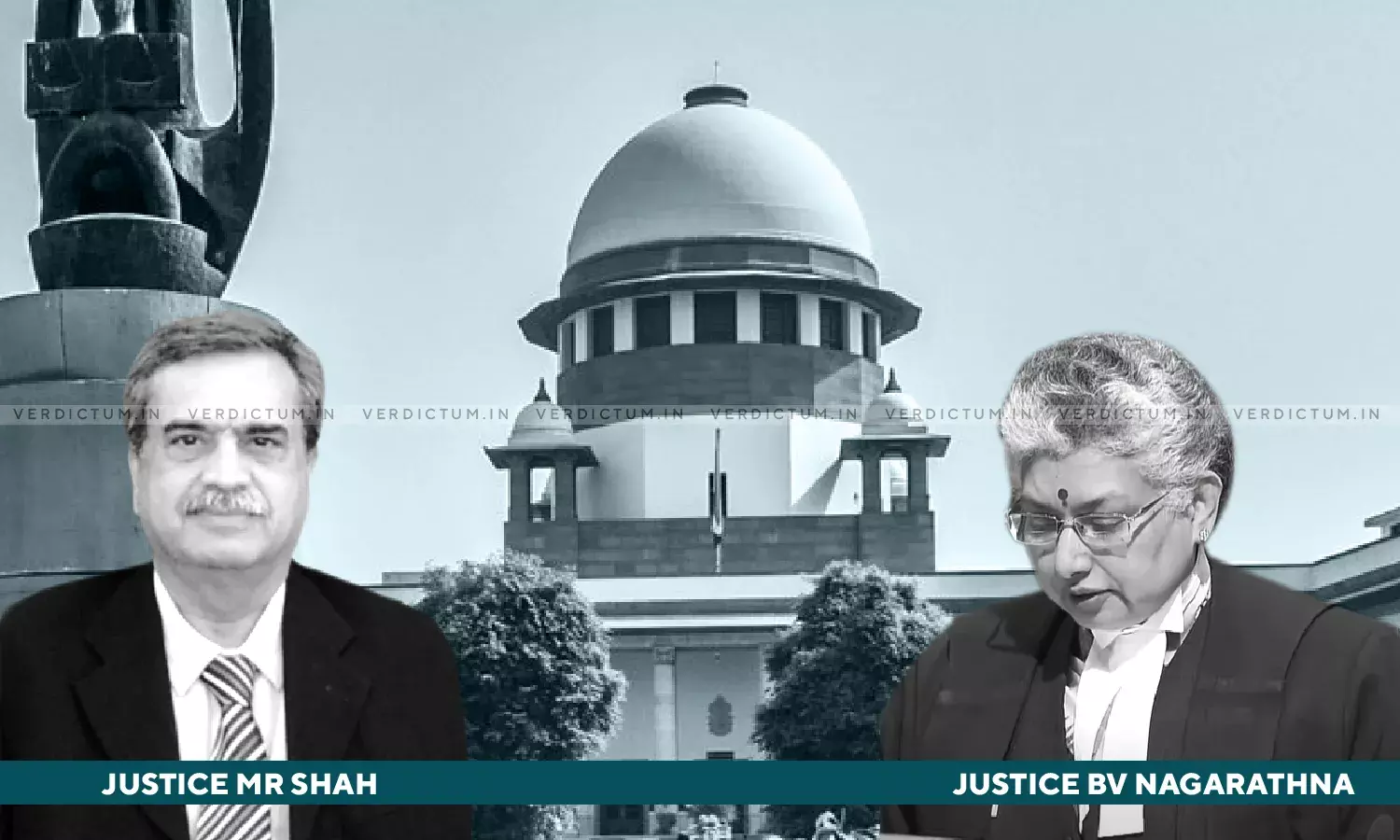Courts Cannot Determine Whether Candidates Possess Requisite Qualification Especially When Expert Committee Considers It - SC

A two-judge bench of Justice M.R. Shah and Justice B.V. Nagarathna has held that as per the settled proposition of law, in the field of education, the Court cannot act as an expert normally, therefore, whether or not a student/candidate is possessing the requisite qualification should better be left to the educational institutions, more particularly, when the Expert Committee considers the matter.
The Court has dismissed four sets of Appeals that were filed by individuals whose candidature for the posts of Postgraduate Trained Teachers and Graduate Trained Teachers had been canceled on the basis that they did not have the requisite qualifications required.
Senior Advocate Mrs. V. Mohana and Counsel Ms. Mandavi Pandey appeared on behalf of the Appellants. Senior Advocate Mr. Sunil Kumar and Counsel Mr. Vishnu Sharma appeared on behalf of the Defendants. Senior Advocate Mr. Ajit Kumar Sinha represented the impleaders, who also opposed the Appeals.
For the appointment to the posts, an advertisement was issued by which applications were invited from the eligible candidates for considering their candidature. The advertisement provided the minimum educational qualification for the posts.
One of the eligibility criteria for the post of the Postgraduate Trained Teachers for History was that the candidate must have obtained a Postgraduate degree in the subject of history. Similarly, one of the eligibility criteria for the post of Graduate Trained Teachers for History was that the candidate must be a Graduate in History and Political Science.
The Appellants applied to the said posts and participated in the selection process. However, on the date of verification, it was found that the Appellants only had degrees in branches of History like Ancient History, Medieval History, etc., as opposed to History as a whole.
Resultantly, the candidature of the Appellants was canceled.
Aggrieved, the Appellants filed Writ Petitions before the High Court, where the Single Judge dismissed the Petitions by observing and holding that obtaining a degree in one of the branches of the subject cannot be said to be obtaining a degree in the subject as a whole, and therefore the Petitioners are not eligible as they do not have the requisite qualifications. The Letter Patent Appeals filed were also dismissed by the High Court.
The Appellants' side vehemently argued before the Supreme Court that the advertisements and the wordings used were confusing. The papers pursued by the Appellants are in "History", and the various branches indicate specialization in the History subject. Therefore, the defendants should not have rejected their candidature on the grounds that they did not have the requisite qualifications.
Further, it was contended that this case calls for the application of the Principle of Legitimate Expectation as, after the publication of identically worded previous advertisements, the candidates having similar/identical qualifications as that of the Appellants were selected.
The Appellants also argued that the High Court failed to acknowledge the heterogeneity of various universities, owing to which certain universities only issue degree certificates in a particular specialized branch of History. The degrees indicate various specializations in related branches of History and cannot be construed as divorced from History itself.
The Defendants claimed that the advertisement and the wordings used were perfectly clear, and having studied and obtained a degree in only one of the branches of History cannot be said to obtain the Postgraduate/Bachelor's degree in History, which was the requirement. The Defendants urged that the same view be upheld by an Expert Committee constituted by the State Government.
It was submitted by the Defendants and the impleaders that only those individuals who have degrees in History, as opposed to a branch of History, have been appointed.
Referring to the wordings of the advertisements, Bench found that the educational qualifications required have been specifically mentioned in the advertisement and that a candidate must have a Postgraduate/Bachelor's degree in History as a whole. There cannot be any deviation from the same as a certification in a branch of History would prove to be insufficient.
To that end, the Bench held that "It appears that the respective writ petitioners have obtained the Postgraduate degrees/ Bachelor degrees, as the case may be, in one of the branches of History, namely, Indian Ancient History, Indian Ancient History and Culture, Medieval / Modern History, Indian Ancient History, Culture and Archaeology. In our view, obtaining the degree in one of the branches of History cannot be said to be obtaining the degree in History as a whole. As a History teacher, he/she has to teach in all the subjects of History, namely, Ancient History, Indian Ancient History and Culture, Medieval / Modern History, Indian Ancient History, Culture and Archaeology etc. Therefore, having studied and obtaining the degree in only one branch of History cannot be said to be having a degree in History subject as a whole, which was the requirement."
The Bench also took cognizance of the fact that all the posts advertised have been filled in and the teachers have begun working.
Hence, the Supreme Court found no reason to interfere with the common judgments and orders passed and upheld that the candidature of the Appellants was rightly canceled.
Click here to read/download the Judgment

